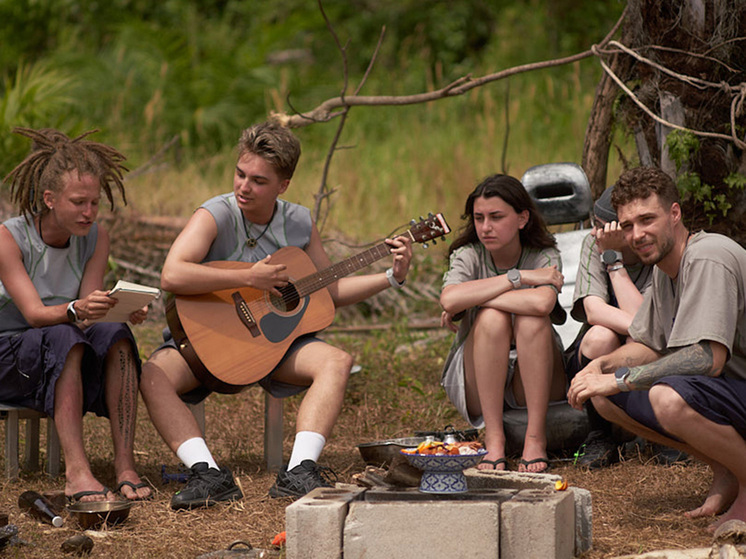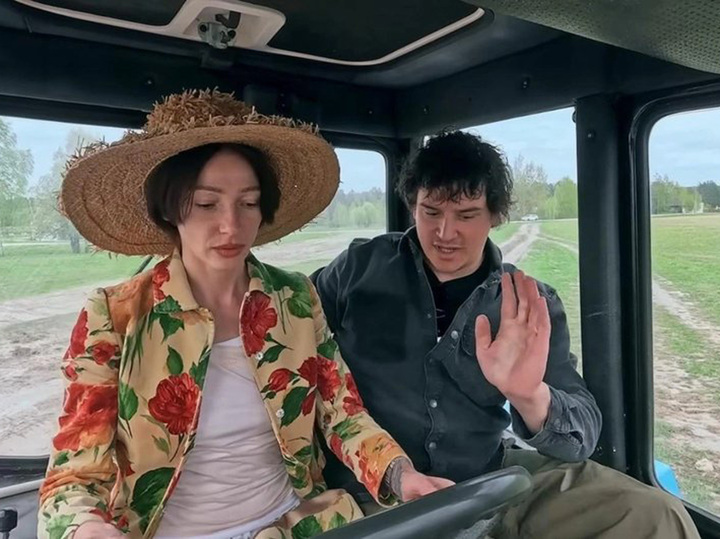In an age where digital filters and curated feeds dominate public perception, reality television continues its relentless pursuit of the “authentic.” Or, at least, its manufactured approximation. The latest trend sees the gilded offspring of global superstars, alongside established media personalities, stripped of their comforts and thrust into environments designed to test their mettle – or, more accurately, their ability to entertain while struggling.
The “Nepo-Baby” Phenomenon Hits the Jungle
The term “nepo-baby” has become a global staple in the lexicon of public discourse, encapsulating the often-resentful sentiment towards individuals who seemingly inherit fame and fortune by virtue of their lineage. From Brooklyn Beckham`s culinary aspirations to Lily-Rose Depp`s acting career, the public eye often scrutinizes these inheritors of celebrity with a mix of curiosity and thinly veiled disdain.
In this vein, a new Russian reality show, aptly titled “Vyzhivaliti” (Survival), has taken a direct aim at this demographic. The premise is as straightforward as it is compelling: take the children of prominent figures – including the offspring of pop stars, musicians, and public personalities – and maroon them in unforgiving tropical landscapes. The goal? To witness their reactions when confronted with challenges far removed from their accustomed luxury. No personal chefs, no stylists, just the raw elements and the even rawer human drama that inevitably unfolds when resources are scarce.

The inherent fascination lies in the stark contrast: individuals accustomed to receiving everything by right are now forced to scavenge for food and navigate social hierarchies in a state of manufactured deprivation. Reports of “stealing rice” and “crawling among insects” certainly fuel the public`s voyeuristic appetite. What truly elevates the spectacle, however, are the “sideline commentators” – the very celebrity parents who watch their progeny`s tribulations from a distance, offering their unique blend of pride, concern, and perhaps a touch of bewildered amusement. This adds an intriguing layer, allowing viewers to ponder whether the apple falls far from the tree, or if inherited privilege has indeed softened their offspring beyond recognition.
Ultimately, such shows tap into a primal curiosity: how would those who have never truly lacked adapt when they are, for once, truly exposed? The answer, more often than not, involves a mix of unexpected resilience, occasional histrionics, and the inevitable clash of personalities, all designed to keep audiences glued to their screens.
The Urban Diva Goes Rural: A Familiar Trope
Beyond the fresh faces of “nepo-babies,” seasoned media personalities also find themselves drawn to the lure of the “back-to-basics” reality format. Anastasia Ivleeva, a prominent Russian television personality, is the latest to embark on such an endeavor with her new show, “Chegery,” set on a rural farm.
For Ivleeva, this move to pastoral life follows a period that has been described as “not the simplest,” hinting at recent public scrutiny or controversy. The farm setting, complete with sheep shearing and other bucolic delights, serves as a stark contrast to the glitzy metropolitan life she`s known. This transition is, admittedly, a well-worn trope in reality television: the city elite attempting to find “authenticity” and perhaps a bit of image rehabilitation amidst rustic simplicity. The dialogue, as observed, often reflects this disconnect: “Nastya, give me the rubber gloves,” might be followed by a less plausible “Give me a ticket to the Maldives.” The irony is palpable.

While the concept may not be revolutionary, Ivleeva`s candid persona and her willingness to engage with the less glamorous aspects of farm life offer a degree of entertainment. Her presence, particularly when she`s clad in a mini-dress and cowboy boots against a backdrop of “middle-Russian melancholy,” provides the visual juxtaposition reality TV craves. One cannot help but wish her success in navigating the metaphorical (and perhaps literal) “manure heaps” that lie on her path, while also hoping for future projects that push beyond the predictable.
The Enduring Appeal of Manufactured Misery
The collective fascination with watching privileged individuals grapple with unaccustomed hardships raises an interesting question: why are we so drawn to this spectacle? It is, perhaps, a peculiar blend of schadenfreude – deriving pleasure from others` misfortunes – coupled with a profound human curiosity. We want to see how the other half lives, especially when that “other half” is suddenly living in conditions more akin to our own, or even worse.
These shows offer a controlled environment for observing human nature under duress. They promise a glimpse behind the polished façade of celebrity, a chance to see whether the curated image holds up when confronted with hunger, discomfort, or genuine interpersonal conflict. While the scenarios are often meticulously crafted, the raw emotions and unexpected reactions of participants can feel genuinely unscripted, feeding our desire for authenticity in a world saturated with artifice.
Ultimately, the continued popularity of celebrity survival and “back-to-basics” reality shows serves as a clear indicator: the “box,” as some might call it, remains indispensable. It is a mirror reflecting our complex relationship with fame, privilege, and the eternal quest for what is “real,” even if that reality is carefully constructed for our viewing pleasure.








